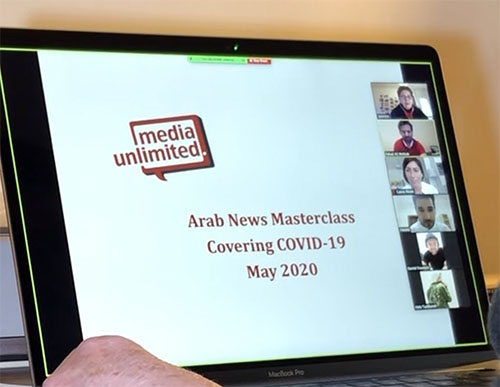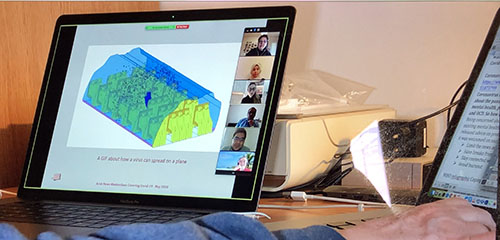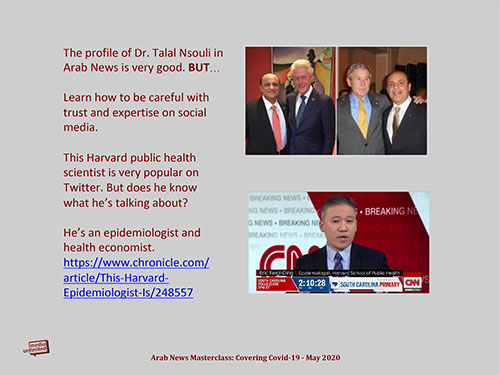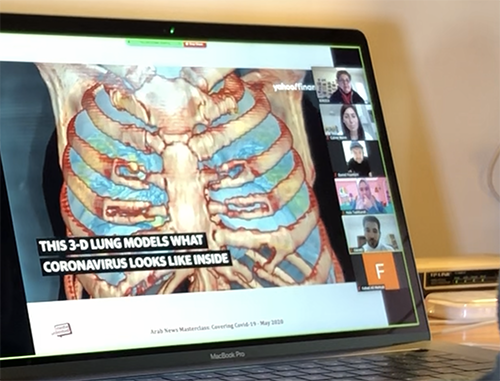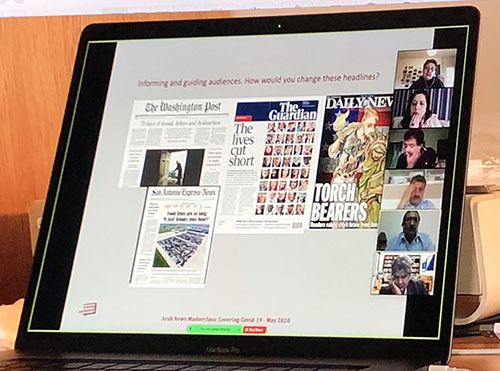Arab News journalists sank their teeth into an intense online reporting, writing and editing masterclass to beef up their skills under extended coronavirus lockdown conditions.

Arab News masterclass in Online Reporting, Writing & Editing
Media Unlimited director Magda Abu-Fadil conducted three video-conferenced classes in June 2020 involving reporters and editors from the Saudi Arabian daily’s Riyadh, Dubai and Pakistan/India bureaus that covered a range of topics they incorporate in their work.
Among the reporting tips were the basics of accuracy, fact-checking information, scrutinizing numbers and statistics, questioning assumptions, and following the money.

Reporting tips
The journalists were also advised to look for questions in online content, listening more carefully to people, cultivating their niche, using social media monitoring tools to help land stories, and tracking official inquiries for potential topics.
On the language front, Abu-Fadil told the trainees to avoid hype in their headlines and copy, and to show, not tell, the story with the facts by also avoiding subjective judgments. Other pitfalls she cautioned against were clichés and jargon that seep into one’s writing.

Advice to journalists: don’t hype, show, don’t tell, avoid oxymorons
While the basics of leads, nut grafs and context are constants in all stories, how they’re packaged online and how information is dug up to disseminate them may vary according to the platform.
Abu-Fadil discussed open source tools, filters and user-generated content to uncover facts. She showed a video on Google Earth Pro and how to capture geolocated photos and videos for inclusion in their content.
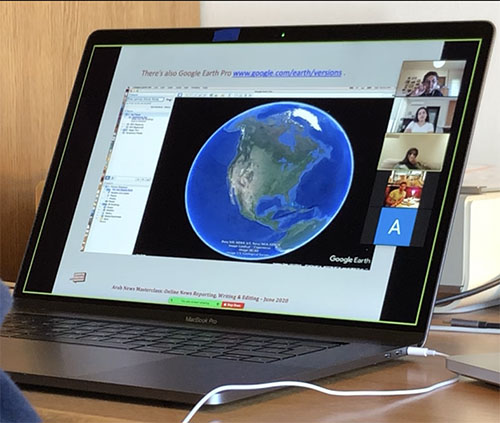
Trainees watch a video on how to use Google Earth Pro in their stories
The masterclass involved writing photo captions, tips for writing better headlines, media ethics, online interviewing techniques and covering virtual events.

The art of writing photo captions
Abu-Fadil provided the journalists with a series of writing and editing tips to fine-tune their copy. They included proofreading tools to clean up clunky phrases and grammar mistakes and online plagiarism checkers.

Journalists are provided with proofreading tools
She also demonstrated how to edit a news item by tightening the headline, deleting redundancies, maintaining verb tense consistency and simplifying the language.

